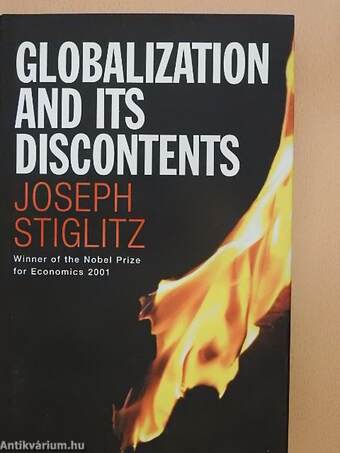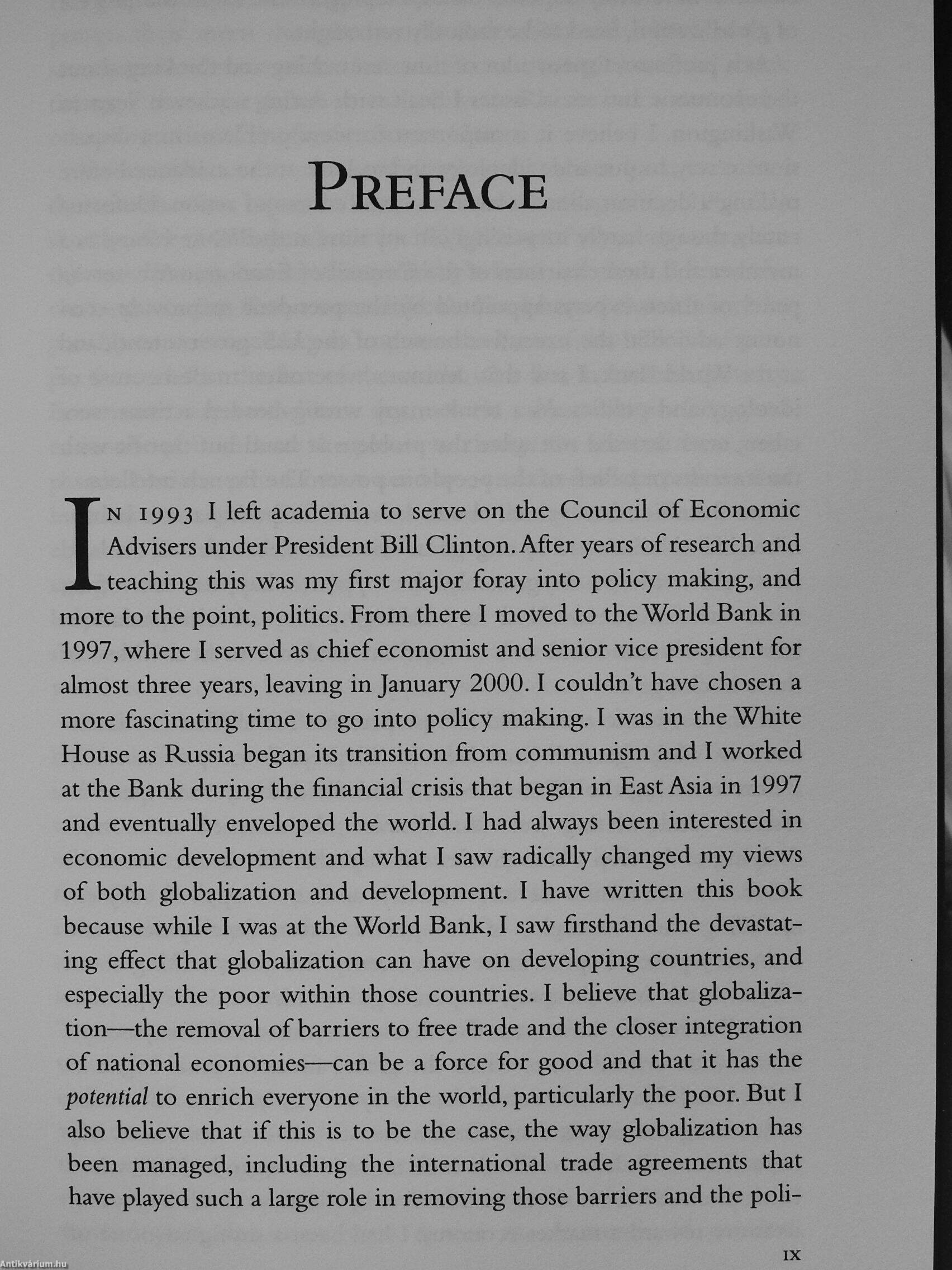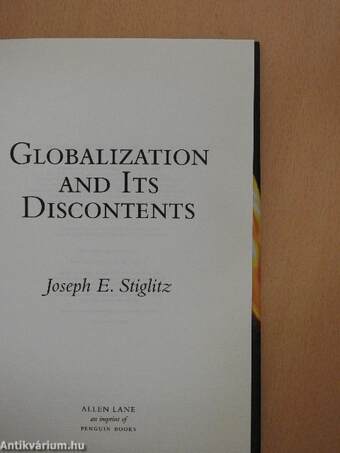1.067.308
kiadvánnyal nyújtjuk Magyarország legnagyobb antikvár könyv-kínálatát

VISSZA
A TETEJÉRE
JAVASLATOKÉszre-
vételek
Globalization and Its Discontents
| Kiadó: | Allen Lane |
|---|---|
| Kiadás helye: | |
| Kiadás éve: | |
| Kötés típusa: | Ragasztott kemény kötés |
| Oldalszám: | 282 oldal |
| Sorozatcím: | |
| Kötetszám: | |
| Nyelv: | Angol |
| Méret: | 24 cm x 16 cm |
| ISBN: | 0-713-99664-1 |
naponta értesítjük a beérkező friss
kiadványokról
naponta értesítjük a beérkező friss
kiadványokról
Előszó
TovábbFülszöveg
'I have written this book because while I was at the World Bank, I saw first hand the devastating effect that globalization can have on developing countries, and especially the poor within those countries. I believe that globalization - the removal of barriers to free trade and the closer integration of national economies - can be a force for good and that it has the potential to enrich everyone in the world, particularly the poor. But I also believe that if this is to be the case, the way globalization has been managed, including the international trade agreements that have played such a large role in removing those barriers and the policies that have been imposed on developing countries in the process of globalization, need to be radically rethought.'
Joseph Stiglitz, Nobel Laureate in Economics, 2001, and former Chief Economist at the World Bank
' ''F
'Globalization today is not working. It is not working for nnany of the world's poor. It is not working for much of the... Tovább
Fülszöveg
'I have written this book because while I was at the World Bank, I saw first hand the devastating effect that globalization can have on developing countries, and especially the poor within those countries. I believe that globalization - the removal of barriers to free trade and the closer integration of national economies - can be a force for good and that it has the potential to enrich everyone in the world, particularly the poor. But I also believe that if this is to be the case, the way globalization has been managed, including the international trade agreements that have played such a large role in removing those barriers and the policies that have been imposed on developing countries in the process of globalization, need to be radically rethought.'
Joseph Stiglitz, Nobel Laureate in Economics, 2001, and former Chief Economist at the World Bank
' ''F
'Globalization today is not working. It is not working for nnany of the world's poor. It is not working for much of the environment- It is not working for the stability of the global economy.'
From a leader of the anti-globalization movement, a statement like this would not be remarkable. But coming from Joseph Stiglitz - former Chief Economist at the World Bank, former Chairman of President Clinton's Council of Economic Advisors and winner of the Nobel Prize for Economics - it is startling and challenging.
It is Stiglitz's extraordinary authority and experience that make this book so compelling. He argues that the West - acting through the International Monetary Fund and World Trade Organization - has seriously mismanaged the processes of privatization, liberalization and stabilization, and that by following its advice many Third World countries and former Communist states are actually worse off now than they were before.
Stiglitz admits, 'It is the trade unionists, students, environmentalists and ordinary citizens marching in the streets of Prague, Seattle, Washington and Genoa who have put the need for reform on the agenda of the developed world.' But he does not take a simplistic pro- or anti-globalization stance. Instead, he confronts us with the often difficult realities of the world. He states just what he believes the market can be trusted to do and which responsibilities government must not hand over to it.
Stiglitz also offers real - though tough -solutions; solutions which involve a substantial shift in the balance of influence between the developed and developing world. In so doing he addresses some of the most pressing concerns of our age. Vissza
Témakörök
- Közgazdaságtan > Gazdaságpolitika
- Közgazdaságtan > Általános > Makroökonómia
- Közgazdaságtan > Pénzügy > Egyéb
- Közgazdaságtan > Közgazdasági elméletek > Egyéb
- Idegennyelv > Idegennyelvű könyvek > Angol > Közgazdaságtan > Gazdaságpolitika
- Idegennyelv > Idegennyelvű könyvek > Angol > Közgazdaságtan > Általános > Makroökonómia
- Idegennyelv > Idegennyelvű könyvek > Angol > Közgazdaságtan > Közgazdasági elméletek > Egyéb
- Idegennyelv > Idegennyelvű könyvek > Angol > Közgazdaságtan > Pénzügy > Egyéb













